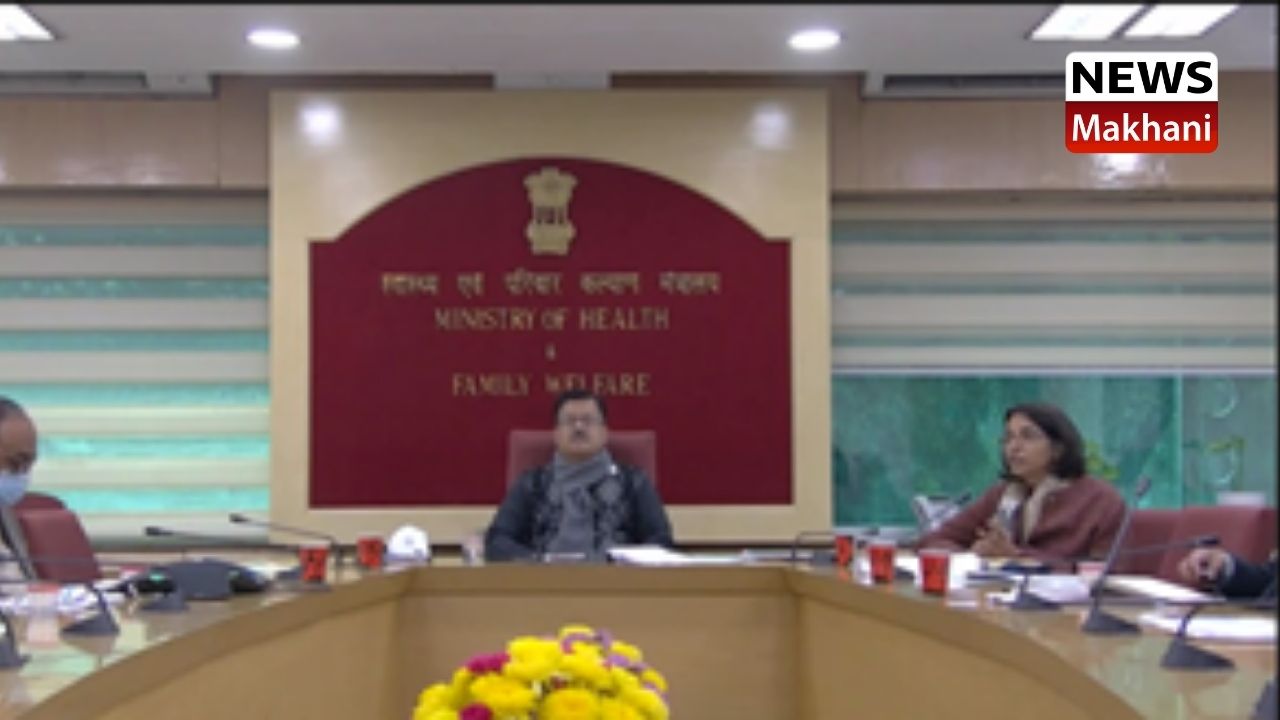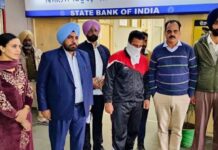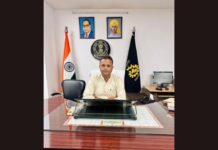States advised to be vigilant and Monitor Case Positivity, Doubling Rate, Clusters of New Cases across Districts
“Observe all precautions; don’t let your guard down”
Local/District Administration responsible for prompt initiation of Evidence-based Actions for COVID Control & Management
States to consider Local Curbs/Restrictions ahead of upcoming festive season
Existing National Clinical Management Protocol remains unchanged for Omicron
“Full Vaccination protects against Severe Illness and Hospitalization including Omicron; Door-to-door Vaccination to be strengthened”
The Centre has advised States and UTs to not let their guard down and maintain their preparedness for fighting COVID19 (and its variants) in view of the new variant Omicron (designated as a Variant of Concern by WHO on 26th November 2021). Union Health Secretary Shri Rajesh Bhushan reviewed the public health preparedness of the States for fighting COVID19 and the Omicron variant along with progress of vaccination with Health Secretaries and NHM MDs of States and UTs, through video conference (VC) today. He highlighted the trajectory of COVID and brought attention to temerging evidence on the Omicron variant of COVID-19 driving the growing number of cases worldwide.
READ MORE :-DRDO successfully conducts second flight-test of indigenously developed conventional Surface-to-Surface missile ‘Pralay’
Union Health Secretary reiterated that local containment measures are to be put in place by the District/local administration when either the test positivity increases beyond 10% or occupancy of oxygenated beds increases beyond 40%. However, based on the local situation and population characteristics such as density etc., and keeping in mind the higher transmissibility of Omicron, States/UTs can undertake containment measures and impose restrictions even before these thresholds are reached. Any restriction must be enforced for minimum of 14 days, they were advised. As syndromes of Omicron variant closely mimic common cold with a higher rate of transmissibility and doubling time, syndromic approach for COVID containment can be employed.
The following 5-fold strategy for tackling the recent ‘Omicron’ threat was re-emphasised:
1. On Containment, States were advised to:
- Impose night curfews and ensure strict regulation of large gatherings, especially ahead of the forthcoming festivities.
- Promptly notify “Containment Zones”, “Buffer Zones” in case in new clusters of Covid positive cases.
- Ensure strict perimeter control of Containment Zone as per extant guidelines.
- Send all cluster samples to INSACOG Labs for Genome Sequencing without delay.
2. On Testing and Surveillance, States were asked to keep a close and strict watch on number of Delta and Omicron cases in all districts; case positivity on a day-on-day and week-on-week basis; the doubling rate; and new emerging clusters and initiate containment in these areas.
In addition, the following needs attention too:
- Conduct tests as per extant ICMR and MoHFW guidelines
- Ensure door-to-door case search in the containment areas
- Test all SARI/ILI and vulnerable/co-morbid people
- Ensure right proportion of RT-PCR: RAT (at least 60:40) tests in total tests being conducted daily. This can be ramped up to 70:30 ratio.
- Ensure contact tracing of all COVID positive persons & their timely testing, especially in clusters reporting high numbers
- Utilize the access to “AIR SUVIDHA” Portal to monitor the international passengers
3. On Clinical management, States were informed that the existing National Clinical Management Protocol remains unchanged for Omicron. They were advised to:
- Increase bed capacity, ensure logistics like ambulances and enforce mechanism for seamless shifting of patients.
- Ensure operational readiness of oxygen equipment
- Maintain buffer stock of essential medicines of at least 30 days
- Utilize funds sanctioned under Emergency COVID Response Package (ECRP-II) to ensure that the requisite capacity of health systems is developed at/near hotspots to respond to any emergency. State health secretaries to monitor the status and progress of fiscal spending and physical progress in this regard on a daily basis.
- Ensure stringent enforcement of home quarantine/ isolation as per extant guidelines
As many States have decommissioned COVID facilities, they are required to keep an action plan ready for making these operational along with adequate availability of doctors and ambulance on call, in case there is a rise in COVID cases.
4. On front of COVID Safe Behaviour, states were advised to:
- Ensure advance engagement and information so that there is no misinformation or panic,
- Communicate transparently on hospital and testing infrastructure availability,
- Conduct regular press briefings.
- Encourage community participation and strict enforcement of Covid Appropriate Behaviour.
5. Regarding Vaccination, States were advised to:
- Ensure 100% coverage of left out first and second dose eligible beneficiaries in an accelerated manner
- Give special focus to be given to those districts where the first & second dose coverage is less than the national average.
- Strengthen door-to-door vaccination campaign especially in States/UTs where vaccination coverage is below the national average.
- States going in for elections in the near future to exponentially ramp up the vaccination, especially in the low coverage districts to protect the vulnerable population.
- Pockets with low vaccination coverage and those with low COVID exposure may be more vulnerable to the new Omicron variant. States to accord special attention to ramp up vaccination in these pockets.
Ms. Arti Ahuja, Additional Secretary (Health), Shri Vikash Sheel, Additional Secretary and Mission Director, NHM, Dr. Mandeep Bhandari, Joint Secretary (Health), Dr. Randeep Guleria, Director, AIIMS, New Delhi, Dr. Sujeet Singh, Director, NCDC and Dr. Samiran Panda, ADG, ICMR, were also present.

 हिंदी
हिंदी






